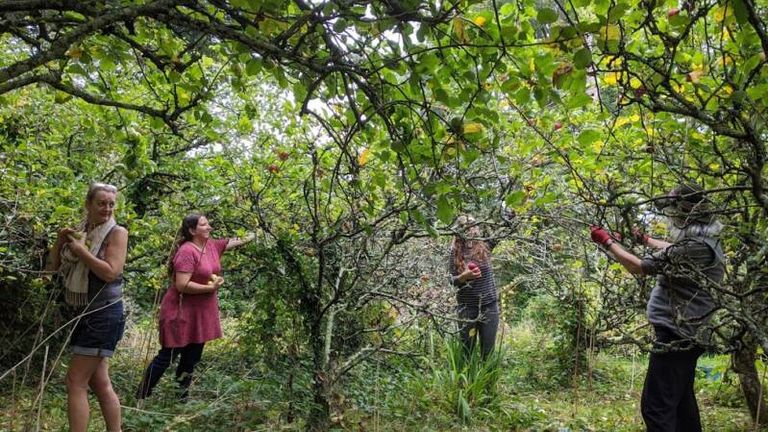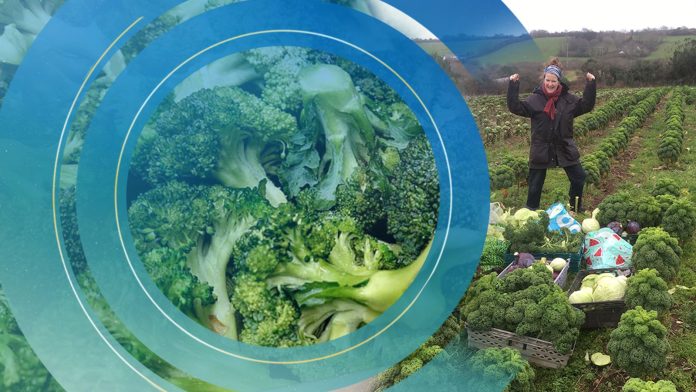Cornish volunteers are tackling the UK’s food waste problem by rescuing abandoned crops and delivering them to blackboards in a revival of the old practice of “gleanings”.
Last year the Gleaning Cornwall Network rescued nearly 50,000 tons of products that would otherwise have been wasted and delivered them to local communal kitchens, women’s shelters, homeless shelters and food banks.
Holly Whitelaw, founder of Gleaning Cornwall, told Sky News: “Let’s stop wasting our trash.
“All food is made up of carbon. And also the cultivation process: producing fertilizer, moving seeds, sowing seeds, all diesel costs, making tractors – all of this is greenhouse gas, and we have to use it “instead of wasting it,” she said.
Image:
The project apologizes for crate loads of vegetables that were found to be the wrong size or could not be harvested. Image: Gleanings from the Cornwall Network
Subscribe to ClimateCast on Spotify, Apple Podcasts, or speaker
It is estimated that a third of all food produced worldwide is wasted, and rotting food releases methane, a potent one climate-Heating gas.
She regrets that we have to “take steps towards more sustainability in our food system in general” and to address the climate and biodiversity crisis, she said.
Until the end of the 18th century, the poor were allowed to pick up crop residues before a court case ruled in favor of private property.
Today, 1.6 million tonnes (3.2%) of all food harvested in the UK is wasted before it leaves the farm and much more is never harvested, according to waste group WRAP. Around five million people now live in food poverty.

Image:
The project helps volunteers channel “climate disasters” and reconnect to food systems, says the founder. Image: Gleanings from the Cornwall Network
According to a study by Sheffield University, 13% of the people in Cornwall have difficulty accessing food or are hungry.
The size of fruits and vegetables is “usually the problem,” said Whitelaw, whose team collected potatoes that are considered too big for chips or cauliflower, which a supermarket rejects because they don’t fit six per box.
But they also collect tons of vegetables like zucchini and beetroot, which continued to grow after farmers fulfilled their orders but couldn’t afford to be picked.
Whitelaw started collecting vegetables in her car in February 2021 after receiving funds from the National Lottery along with other groups across England.
Now the project is using multiple trucks and coordinating nearly 150 volunteers, but needs more farmers to sign up to meet demand.
Watch the daily climate show Monday through Friday at 8:30 p.m. on Sky News, the Sky News website and app, on YouTube and Twitter.
The show examines how global warming is changing our landscape and provides solutions to the crisis.

